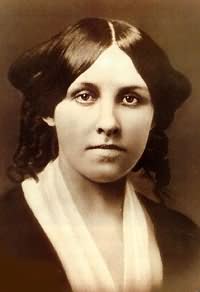Girls
young female human
A girl is a young female human usually a child or an adolescent. When a girl becomes an adult, she is accurately described as a woman. However, the term girl is also used for other meanings, including young woman, and is sometimes used as a synonym for daughter, or girlfriend. Girl may also be a term of endearment used by an adult, usually a woman, to designate adult female friends.

- For the TV show, see Girls (TV Show)












A
edit- Girls are so queer you never know what they mean. They say no when they mean yes, and drive a man out of his wits just for the fun of it.
- Louisa May Alcott, Little Women (1868); Laurie to Jo, in Ch. 35: Heartache.
- Man's love is of man's life a thing apart;
Girls aren't like that.- Kingsley Amis, A Bookshop Idyll (1956)
- Cf. Lord Byron, Don Juan, "Man's love is of man's life a thing apart, / 'Tis woman's whole existence."
- Most plain girls are virtuous because of the scarcity of opportunity to be otherwise.
- Maya Angelou, I Know Why the Caged Bird Sings (1969), Ch. 35.
- Next to being married, a girl likes to be crossed in love a little now and then. It is something to think of, and gives her a sort of distinction among her companions.
- Jane Austen, Pride and Prejudice (1813), Ch. 23.
B
edit- I'll tell you what would really age me fast: if I had a teenaged daughter. I don't think I could handle that. Because that would mean teenaged boys would be coming around to my house. "Hi, Mr. Barry!" they'd say, with their cheerful, innocent young voices. "We're here to have sex with your daughter!" No, of course they wouldn't come out and say that, but I know that's what they'd be thinking, because I was a teenaged boy once, and I was basically a walking hormone storm. I'm sure modern boys are no different. So if I had a teenaged daughter, and a boy came to my house, after somehow picking his way through the land mines in the lawn, I'd probably lunge through the screen door and strangle him right there ("Hi, Mr. Barry! Is Jennifer heAAAAAAAWWWWK"). You think I'm exaggerating, but I have male friends whose daughters are approaching puberty at speeds upwards of 700 miles per hour, and when you say the word "dating," my friends get a look in their eyes that makes Charles Manson look like Captain Kangaroo.
- Dave Barry, Dave Barry Turns 40 (New York: Crown Publishers, 1990), p. 63
- So in some ways I'm relieved that I don't have daughters, although in other ways I envy people with daughters, because little girls tend to be thoughtful, whereas little boys tend to be- and I say this as a loving father who would not trade his son for anything in the world- jerks. I used to think this was society's fault. This was back in the idealistic sixties and seventies, when we Boomers had many excellent child-rearing theories and no actual children. Remember those days? Remember when we truly believed that if society treated boys and girls exactly the same, then they wouldn't be bound by sexual stereotypes, and the boys could grow up to be sensitive and the girls could grow up to be linebackers? Ha ha! Boy, were we ever idealistic! By which I mean "stupid." Because when we look at actual children, no matter how they are raised, we notice immediately that little girls are in fact smaller versions of human beings, whereas little boys are Pod People from the Planet Destructo. I don't think society has anything to do with this. I think that if you had two desert islands, and you put girl babies on one island and boy babies on another island, and they were somehow able to survive with no help from adult society, eventually the girls would cooperate in collecting pieces of driftwood and using them to build shelters, whereas the boys would pretend that driftwood pieces were guns. (Yes, I realize they'd have no way of knowing what guns were. This would not stop them.) Not only that, but even if the island had 176,000 pieces of driftwood on it, the boys would all end up violently arguing over one of them.
- Dave Barry, Dave Barry Turns 40 (New York: Crown Publishers, 1990), p. 63-64
- The most sensible way to ask a girl is to walk directly up to her on foot and say, "So, you want to go out? Or what?" I never did this. I knew, as Eric Knott knows, that there was always the possibility that the girl would say no, thereby leaving me with no viable option but to leave Harold C. Crittenden Junior High School forever and go into the woods and become a bark-eating hermit whose only companions would be the gentle and understanding woodland creatures. "Hey, ZITFACE!" the woodland creatures would shriek in cute little Chip 'n' Dale voices while raining acorns down upon my head. "You wanna DATE? HAHAHAHAHAHA."
- Dave Barry, Dave Barry is Not Making This Up (New York: Crown Publishers, 1994), p. 202-203
- So the first rule of dating is: Never risk direct contact with the girl in question. Your role model should be the nuclear submarine, gliding silently beneath the ocean surface, tracking an enemy target that does not even begin to suspect that the submarine would like to date it. I spent the vast majority of 1960 keeping a girl named Judy under surveillance, maintaining a minimum distance of 50 lockers to avoid the danger that I might somehow get into a conversation with her, which could have led to disaster:
JUDY: Hi.
ME: Hi.
JUDY: Just in case you have ever thought about having a date with me, the answer is no.
WOODLAND CREATURES: HAHAHAHAHAHA.
The only problem with the nuclear-submarine technique is that it's difficult to get a date with a girl who has never, technically, been asked. This is why you need Phil Grant. Phil was a friend of mine who had the ability to talk to girls. It was a mysterious superhuman power he had, comparable to X-ray vision. So, after several thousand hours of intense discussion and planning with me, Phil approached a girl he knew named Nancy, who approached a girl named Sandy, who was a direct personal friend of Judy's and who passed the word back to Phil via Nancy that Judy would be willing to go on a date with me. This procedure protected me from direct humiliation, similar to the way President Reagan was protected from direct involvement in the Iran-contra scandal by a complex White House chain of command that at one point, investigators now believe, included his horse.- Dave Barry, Dave Barry is Not Making This Up (New York: Crown Publishers, 1994), p. 203
- My point here is that the toys marketed for boys, like the TV shows, tend to encourage the boys' already aggressive nature, which could be why boys spend so much time acting like what professional psychologists call "jerks." Or it could be that boys are born with some kind of jerk gene, and the toy and TV people are merely cashing in on this. Whatever the cause, I know I spent a lot of time envying the parents of girls. I'd see a table of little girls, and they'd be eating and talking, just like miniature humans. Whereas my son and his friends seemed to have some kind of nervous-system linkage between their mouths and their hands, so that they could not chew without punching. Eating with them was as relaxing as amateur eyeball surgery. "Stop punching," I'd say. They'd try to stop, sometimes succeeding for as long as .00014 seconds. Then the Punch Reflex would overwhelm their tiny mental circuits. "Stop punching!" I'd repeat. "We're not punching!" they'd say, punching. "YOU ARE TOO PUNCHING!!" I'd shout, spewing out pieces of semichewed hamburger. "I CAN SEE YOU PUNCHING!! AND STOP BLOWING BUBBLES IN YOUR MILKSHAKES!! AND STOP SQUIRTING THE KETCHUP PACKETS AT EACH OTHER!! JUST EAT!!" They'd look at me as though I were insane. Their feeling was, if you were only going to eat, what was the point of going to a restaurant?
Then I'd look over at the table of little girls, who'd be chatting and thoughtfully passing each other the napkins, and I would wonder how we ever permitted my gender to get control of, for example, the government.- Dave Barry, Dave Barry's Complete Guide to Guys: A Fairly Short Book (New York: Random House, 1995), p. 52-53
- Those girls who give themselves to the man they love before marriage really succeed in cheating themselves. I know and understand how strong the temptation is, but also I know something else: there is nothing else more beautiful and wonderful than sexual love between marriage partners- when that love is entered into and blessed by God. Why would anyone want to accept anything less?
- Anita Bryant, Mine Eyes Have Seen The Glory (Old Tappan: Fleming H. Revell Company, 1970), p. 66
C
edit- A girl should be two things: classy and fabulous.
- Coco Chanel, Gaille, Brandon (July 23, 2013). "List of 38 Famous Fashion Quotes and Sayings". BrandonGaille.com. Retrieved November 15, 2013.
- In the summer, girls come and summer girls go. Some are worth while and some are so-so.
- Rich Cronin, "Summer Girls" (1999), LFO
D
edit- “You were speaking about its being a girl,” said Miss Betsey. “I have no doubt it will be a girl. I have a presentiment that it must be a girl. Now child, from the moment of the birth of this girl—”
“Perhaps boy,” my mother took the liberty of putting in.
“I tell you I have a presentiment that it must be a girl,” returned Miss Betsey.- Charles Dickens, David Copperfield (1850)
E
editF
edit- "Fiddlesticks," Mother said. "Anything he will learn about sixteen-year-old girls from you will probably be a good deal more innocent than what he will learn some day from sixteen-year-old girls."
- William Faulkner, The Town (1957), Ch. 12.
- Charles Mallinson's mother telling her brother Gavin Stevens that it's all right to say what he has to say in front of the boy.
G
edit- When one is not used to it, it is difficult to be recollected in the middle of a crowd of more or less wild little girls, who in class do the bare minimum that will keep them out of trouble and in play-time go right off their heads.
- Henri Ghéon, The Secret of the Little Flower (Sainte Thérèse de Lisieux, 1934), Ch. IV: Teresa at School, trans. Donald Attwater. London: Sheed & Ward, 1934, p. 51.
- Let us begin with a few simple, crucial, and apparently unmentionable facts about a typical high school classroom. First and most important, most of the boys and a good number of the girls are thinking about the opposite sex most of the time. If you do not believe this, you are a dreamer. The only thing about a classroom more important to adolescent boys than whether girls are present is whether or not it is on fire.
Advocates of coeducation will tell you that the boys are learning to regard the girls as "human beings" rather than as sexual objects. These are the kinds of people who imagine that most males anywhere, under any circumstances- short of affliction by senility, homosexuality, or Bella Abzug- ever refrain from regarding females as sexual objects. These are the "imaginative" types of people who run our schools. They tend to think that their sexual interest in budding adolescent girls is their own secret perversion. It happens to be shared by the boys in the school (as well as by all the other male teachers).
If the educator is particularly creative and imaginative, he will suppose that these young "human beings" are learning a lot about life in their work together. What in fact the boys are learning is that unless they are exceptionally "bright' and obedient, they will be exceeded in their studies by most of the girls. Unless you are imaginative, you will see that this is a further drag on their already faltering attention to Longfellow's Evangeline. Clearly in a losing game in masculine terms, the boys react in two ways: They put on a show for the girls and dominate the class anyway, or they drop out. Enough of them eventually drop out, in fact, to disguise the otherwise decided statistical superiority of female performance in school. But they do not drop out soon enough to suit educators for whom aggressive boys are the leading problem in every high school.- George Gilder, Sexual Suicide (New York: Quadrangle Books, 1973), p. 207-208
- Adolescent boys are radically different from adolescent girls. The boys, for example, are at the pinnacle of sexual desire and aggressiveness. In school, what they chiefly need is male discipline and challenge, ideally without girls present to distract them. Girls, on the other hand, are less aggressive and sexually compulsive at this stage and are more willing to study without rigid policing and supervision. Thus a classroom that contains both boys and girls will hurt both. The boys will be excelled and demoralized by the girls; the girls will be distracted and demoralized by the boys. Both sexes will be damaged by the continuous policing that the rebellious and unsuccessful boys require.
There are benefits to coeducation, however. It allows our educational system to avoid "sexism," reduce costs, and get rid of rambunctious lower-class males. It conditions a good many boys to compete with women on female terms. The classroom successes of these "grinds" and "apple-polishers" are somewhat tarnished after school or in the men's room, when they are brutally harassed by gangs of unsuccessful male students. But what happens after school- or in the men's room, God forbid- is of little concern to the school management. The only after-school that interests them is college admissions.- George Gilder, Sexual Suicide (New York: Quadrangle Books, 1973), p. 208-209
- Young girls are the chatelaines of truth; they must see that it is protected, that the guilty lead the life of the guilty, even if the world rocks on its foundations.
- Jean Giraudoux, Electra (1937), Act I, trans. Phyllis La Farge with Peter H. Judd.
- No boys for me growing up! I was so skinny and tall. Everybody called me a giraffe. … I had no boobs and no butt and nobody liked me, I was so lonely. All the boys would come to me and want advice because they wanted my friend. But nobody ever wanted me — high school was a very sad, lonely time.
- Recently Anita and I judged a beauty contest where the girls answered questions about marriage and motherhood. Several said, "I think I'll be a good mother. I plan to stay with my children full-time until nursery school, and then I can go out and work. Seems as though the girls think it's okay to raise their kids until nursery school, then let others do it from then on. Sure, plenty of husbands want that, too. Some parents ship their kids off to school or camp all summer just to get rid of them. Most of the girls we interviewed in this contest said they saw nothing unusual about having sexual intercourse before marriage. These are so-called nice girls, eighteen and nineteen, who without batting an eyelash tell you, "I don't think there's anything wrong with living together before marriage." You ask why, and discover many come from broken homes. They don't want to make the mistakes their parents made. They'd rather avoid marriage completely.
- Bob Green, Bless This House (1972) by Anita Bryant and Bob Green. Old Tappan: Fleming H. Revell Company, p. 18-19
- As Anita and I travel about the country, we can't help but believe the sexes are getting closer together. There's not as much difference between boys and girls as there used to be. Many young men today seem to have abandoned the male role. They refuse to be heads of households. I don't think a serious young woman should marry someone like that because I don't think she's going to change him. It's frightening. I don't know if physical appearance or mode of attire or these things make the difference, but it seems guys are more docile. They're almost feminine in manner and dress, and their attitudes toward girls are very lackadaisical and ungallant.
- Bob Green, Bless This House (Old Tappan: Fleming H. Revell Company, 1972) by Anita Bryant and Bob Green, p. 141-142
- A good many girls these days assume the male role and call boys for dates. I have a nagging feeling that boys are going to get less and less interested in girls as a result. The intrigue is going. If a girl wants to put herself on an equal plane with the boy, she's going to find herself less and less in demand. It used to be that if guys wanted to date a sharp girl they had to polish the car and fix themselves up- and compete. If they don't have to do that, they're going to lose interest. Maybe girls phone boys from necessity. Maybe the boys don't have that get-up-and-go- that desire. I see an extreme lack of desire in young men today.
- Bob Green, Bless This House (Old Tappan: Fleming H. Revell Company, 1972) by Anita Bryant and Bob Green, p. 142
H
edit- When I was 13, I was flat as a board and totally unhappy about it. I would write in my diary every day, Oh, if I could just have a B cup by summer! I actually prayed for big boobs. So I developed at about 14, and then I was 15, 16, 17, and they kept going.
- Katherine Heigl discussing her bust in an interview with Maxim (June 2000)
- Oh God — I look back now, and it seems so gross. At just 14 years old, I had to wear a thong bikini. And then they used that scene in the trailer, so my entire school saw it! There are still men who come up to me today and say, "You were really hot in that film!" I was 14, for God's sake!
- Katherine Heigl discussing her scene in My Father The Hero in an interview with FHM (October 2000)
- Girls were made to love and kiss.
- A. P. Herbert in English version (1937) of Franz Lehár's operetta, Paganini (1925); original libretto by Paul Knepler and Béla Jenbach
I
edit- A girl and a guinea are both alike. You never know how good they are till you ring them.
- Jean Ingelow, John Jerome, his Thoughts and Ways, Chapter 7 (1886).
J
editK
edit- A young girl's beauty should speak to the soul and to the imagination, and not to the senses like the beauty of women.
- Alphonse Karr, Les Femmes (Paris: Michel Lévy, 1855), p. 109.
L
edit- There is nothing so difficult to support imperturbably as the head of a lovely girl, except her grief.
- Walter Savage Landor, "Aesop and Rhodope", in The Book of Beauty (1844), ed. by the Countess of Blessington; later included in Imaginary Conversations.
- As for gender, the abstinence-only curricula continue to exhibit what Michelle Fine described a decade ago: the peer doing the pressuring is male; the refuser-delayer is female. Some mainstream publishers set out to fix this in the 1990s. "Reducing the Risk," for instance, employs a novel approach: it names one of its fictional couples Lee and Lee, who evince no obvious gender traits and take turns aggressing and thwarting aggression. In Lee and Lee, the ideology of chastity has trumped women's liberation. Now, boys are expected to desire as little as girls.
- Judith Levine, Harmful to Minors: The Perils of Protecting Children from Sex (2002), Judith Levine, forward by Joycelyn Elders, University of Minnesota Press, Minneapolis, ISBN 0816640068 No-Sex Education, p. 93 [1]
M
edit- In country music, the singers are really soulful, and you can just hear all the emotion on their voices. They mean everything they say. And R&B is the same way. It's like every note, every word, is telling you exactly how the singers feel about what they're singing about. It's just that in country music, all that feeling is usually about a truck, and in R&B, it's more often about a girl. And for me, girls are a lot more fun to sing about than a truck.
- Austin Mahone, Just How It Happened (2014), p. 26
N
edit- The young girl stood beside me. I
Saw not what her young eyes could see:
—A light, she said, not of the sky
Lives somewhere in the Orange Tree.- Shaw Neilson, Ballad and Lyrical Poems (1923), "The Orange Tree".
O
edit- Afghanistan is becoming the world’s largest humanitarian crisis... 18.8 million Afghans are unable to feed themselves every day. This number is set to rise to nearly 23 million by the end of the year... However, starvation is not the only issue faced by children. As UNICEF warns “Afghanistan was already one of the toughest places on earth to be a child. Right now, the situation is desperate.” The situation deteriorates quickly as the country is on a brink of famine.
Recent weeks have seen yet another trend: families selling their children, and mostly girls, so that families could buy food. In one of reported cases, a six-year-old girl and 18-month-old toddler were sold for $3,350 and $2,800 respectively. In another reporting, a 9-year-old girl was sold for about $2,200 in the form of sheep, land and cash. There are many more such stories.... Some of these girls will become child brides... Child marriage are also a major violation of their human rights and can sometimes amount to a form of modern day slavery. While poverty may drive child marriage, child marriage traps girls in a cycle of poverty. Child marriage further puts girls at risk of physical and sexual abuse...Some of the girls will be turned into child laborers... The people of Afghanistan cannot be left to starve. Afghan girls cannot be sacrificed.- Afghan Girls Being Exchanged For Food As Famine Nears, Ewelina U. Ochab, Forbes November 25, 2021
- Dear to the heart of a girl is her own beauty and charm.
- Ovid, The Art of Beauty (c. A.D. 8), trans. Rolfe Humphries.
P
edit- And there was that wholesale libel on a Yale prom. If all the girls attending it were laid end to end, Mrs. Parker said, she wouldn't be at all surprised.
- Dorothy Parker, quoted in Alexander Woollcott, "Our Mrs. Parker", While Rome Burns (New York: The Viking Press, 1934), p. 149.
- This was the first appearance in print of Parker's famous quote, subsequently often put into direct speech as "If all the girls attending the Yale prom were laid end to end, I wouldn't be at all surprised."
- Sugar, spice and everything nice. These were the ingredients chosen to create the perfect little girls.
- Opening narration from The Powerpuff Girls (1998–2005) television show.
Q
edit- The laughter of girls is, and ever was, among the delightful sounds of earth.
- Thomas De Quincey, "Coleridge and Opium-Eating" (1845), in Coleridge and Opium-Eating and Other Writings (Edinburgh: Adam and Charles Black, 1862), footnote on p. 85.
R
edit- The eroticization of innocence and the fascination with the erotic child are deeply gendered. From depictions of sexualized images of prepubescent girls in the Victorian era (Higonnet 1998) to the Lolita-like commodification of little girls as sexual consumers and performers in contemporary society (Giroux 2000; Walkerdine 1999; Jackson 1982), it is the girl-child, not the boy-child, whose innocence is eroticized. And it is the eroticization of little girls that provokes our (adult) concern for their protection. Indeed, societal anxieties around girls as we enter the first decade of the twenty-first century continue to circle around what Walkerdine has termed the "protosexual" girl. It is the sexual girl that represents the "Other" to normal childhood, where "normal girls as well behaved, hard working and asexual" (Wakerdine 1999, 4).
- Emma Renold, "Primary School 'Studs': (De)constructing Young Boys' Heterosexual Masculinities", reprinted from Men and Masculinities, Volume 9, Number 3 (2007), 275-297 in Sexualities: Identities, Behaviors, and Society (2004), 2nd Edition (2015) by Michael Kimmel and The Stony Book Sexualities Research Group (editors), p. 79
S
editT
edit- And sweet girl-graduates in their golden hair.
- Alfred Tennyson, The Princess (1847), Prologue, line 142.